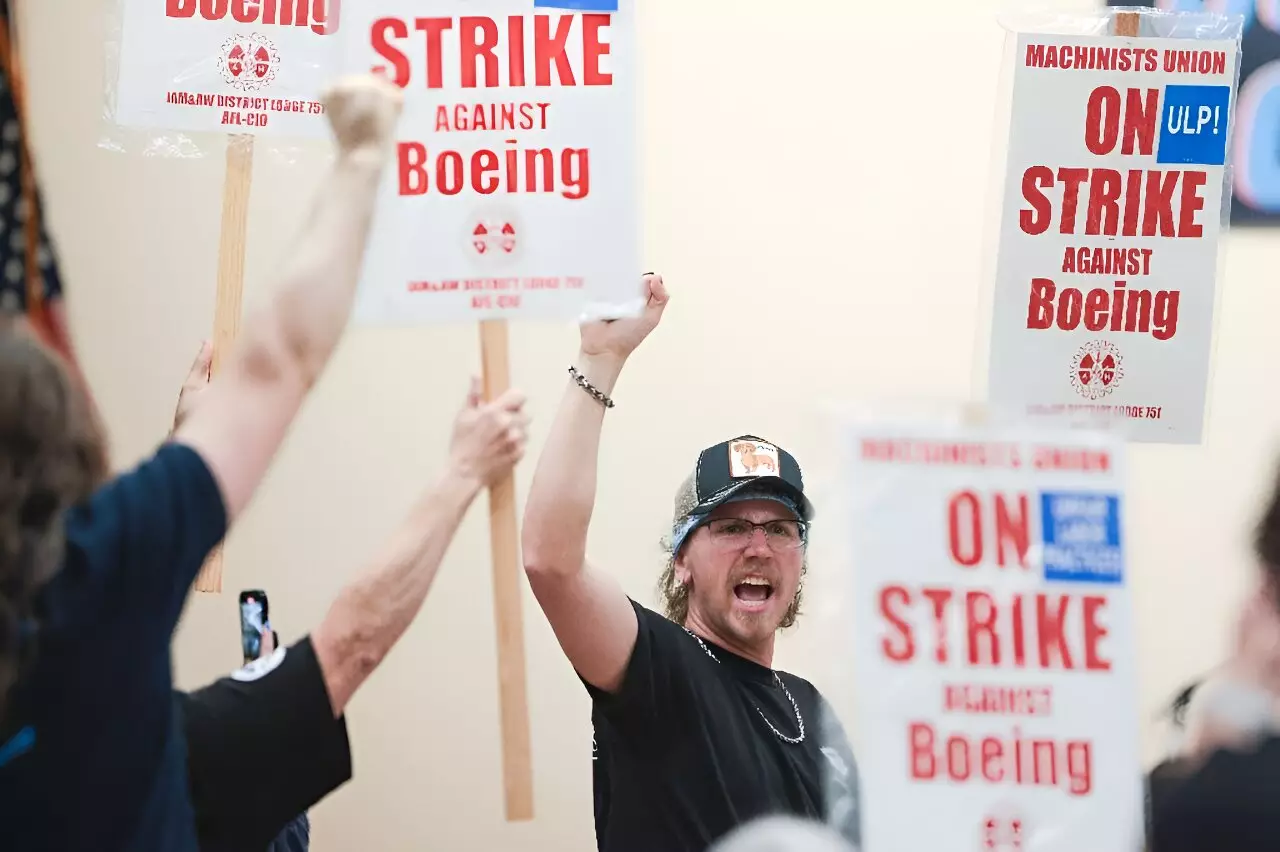The ongoing labor dispute between Boeing and its factory workers has escalated into a significant strike, marking the first such action in 16 years. The strike was initiated after union members resoundingly rejected a contract proposal that failed to meet their demands for better pay and working conditions. With an overwhelming 94.6 percent vote against the tentative agreement and a staggering 96 percent in favor of striking, the machinists union, IAM-District 751, represents a pivotal moment in labor relations within the aerospace sector. This situation highlights the vulnerabilities that come with stagnant wages amidst the growing cost of living, as workers grapple with economic pressures.
The IAM-District 751 union has shown resilience and organization. As they prepare to negotiate with federal mediators, appointed by the Federal Mediation and Conciliation Service, their statement emphasizes unity and strength. The call to arms—”Now is the moment to rise”—reflects a growing consciousness among workers that their collective actions can significantly influence corporate practices. The union’s response underlines a broader trend of labor movements across the country, aiming to remind corporations that employee voices and rights must be at the forefront of corporate policy and negotiation.
Boeing, under the leadership of new CEO Kelly Ortberg, is navigating treacherous waters. The company’s previous attempts to stabilize financially have been hampered by this indefinite strike, which has resulted in the shutdown of key assembly plants for the 737 MAX and 777 models. The proposed wage increase of 25 percent over four years, coupled with a pledge to invest back into the Puget Sound region, was deemed insufficient by the workforce, leading to claims of wishful thinking by company executives not tuned into the realities faced by their employees. This disconnect signals a possible need for Boeing to reassess its approach to employee relations and consider more equitable compensation structures moving forward.
As the strike continues, its repercussions extend beyond the assembly lines. The paralysis of production capabilities at major Boeing plants has the potential to further complicate the company’s path to recovery, contributing to delivery delays and increased financial strain. Additionally, the outcome of this labor dispute could resonate throughout the aviation industry, setting precedents for how companies engage with unions and negotiate labor contracts. The public support for the striking workers further underscores a shift in consumer sentiment, where more individuals advocate for ethical labor practices and fair compensation.
The Boeing strike represents not just a conflict between a corporation and its workforce; it encapsulates a broader struggle for labor rights in an evolving economic landscape. As negotiations resume under federal mediators, the importance of this situation cannot be overstated. Workers are standing firm in their demands for fair wages and a voice in their workplace, signaling a new era of labor consciousness and advocacy. The outcome of this strike may ultimately redefine the relationship between management and labor within the aviation industry and beyond, casting a long shadow on corporate practices in the years to come.


Leave a Reply